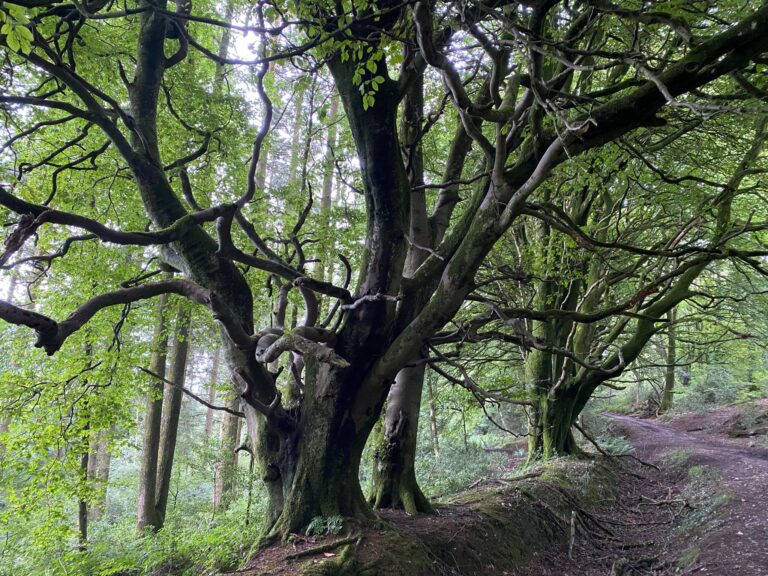

Understanding Memory of UK Treescapes for Better Resilience and Adaptation (MEMBRA)
£1.8 m
3 years

As humans, we don’t even have to think about how to use memory. We use it naturally to guide our actions (e.g. in reading this summary), to assess risk and to reminisce about the good times. We can also easily detect memory in the behaviour of animals, and it is the basis of machine-learning computer codes. But do trees have memory?
Scientists have found that plants can write and access a record of stress. So the phrase “memory of trees” is just as meaningful as the (artificial) intelligence of a machine. Writers and artists are exploring creatively how this new knowledge is altering our relationship with trees. Perhaps one of the most notable examples is Richard Powers’ Pulitzer Prize-winning novel The Overstory.
Why would scientists want to explore this further? Well, plant memory may be fundamental in allowing treescapes to swiftly adapt and therefore survive and thrive under rapid environmental changes.
The imprinting of memory in plants mostly happens by altering its epigenetic signature. Epigenetic changes are ones that alter the activity of some genes but that do not change the DNA sequence itself. Whether long-lived plants can acquire, retain, and transmit memory from stress remains unknown. But this is what MEMBRA aims to figure out.
MEMBRA will study epigenetic changes from stress and whether these changes are passed down through generations in UK tree species.
Moreover, trees have marks of past interactions with the environment recorded into their wood as they grow. MEMBRA will also analyse tree rings to visualise a complete lifetime picture of trees’ responses to their past environment. The combination of ecology, tree rings and molecular techniques will allow us to assess whether past stress has improved the resilience of UK treescapes.
The understanding of stress memory in trees opens new paths to consider, e.g. the re-conceptualisation of environmental ethics and even tree consciousness. MEMBRA will collate information on how memory has been represented as a characteristic of trees. The project will study how this alters our understanding of the evolution and resilience of treescapes. MEMBRA will look at how a consideration and appreciation of tree memory can foster moral understanding of treescapes. They will look at how this understanding changes human’s moral valuing of trees. And finally, how this challenges a utilitarian and monetised ‘ecosystem services’ valuation of treescapes.
“MEMBRA will provide tools to identify which species and populations will offer better resilience and adaptation and can therefore be used most effectively in conservation and planting strategies.”
– Dr Estrella Luna-Diez, Project Lead
In addition, with the new moral understanding, MEMBRA will identify and use new language to include the concept of tree memory into policy-based initiatives. The final results of MEMBRA will feed into policy development and the flourishing of the first memory-inspired intentional forest: the MEMBRA Treescape.
Dr Estrella Luna-Diez, University of Birmingham
Universities of Exeter, Leeds, Leicester and Bangor. Project collaborators include The Walking Forest artist collective, Forestry England, The National Forest Company, Small Woods and Small Woods Wales.